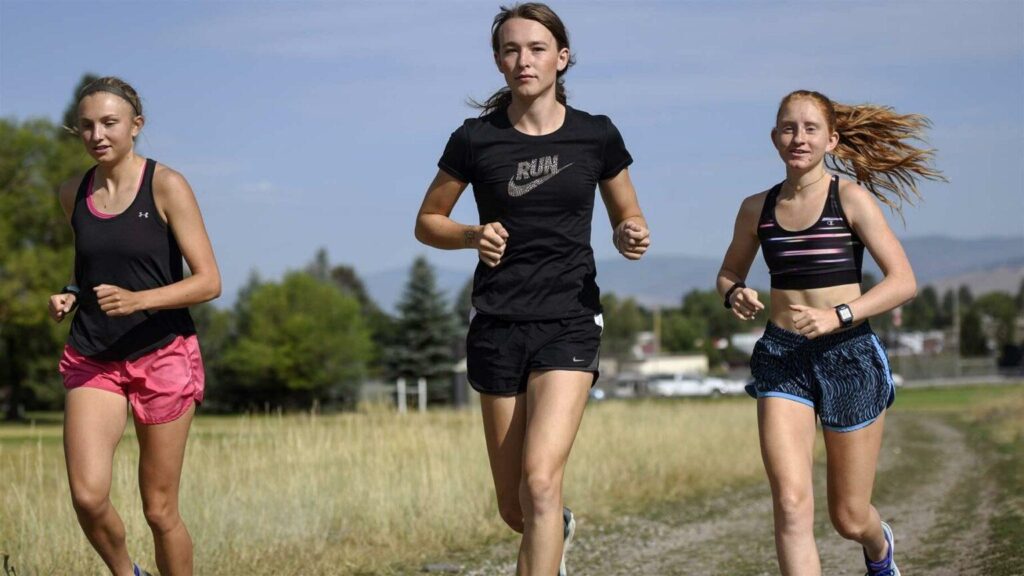As debates over transgender athletes continue to dominate headlines nationwide, Maine finds itself at a critical crossroads. Central to this discourse is the participation of transgender youth in sports-a topic that has sparked passionate opinions across communities. In light of recent legislative battles and social discussions, many are calling on men-fathers, coaches, teammates, and community leaders-to step up in support of Maine’s transgender youth athletes. This opinion piece explores why such backing is not only a matter of fairness and inclusion but also essential to fostering a stronger, more compassionate sporting culture in the state.
The Importance of Male Allies in Advocating for Trans Youth Inclusion
Men stepping up as advocates for trans youth in sports can be a powerful catalyst for change, fostering a culture of respect and inclusion. By openly supporting trans athletes, male allies challenge entrenched stereotypes and contribute to breaking down harmful biases that often marginalize these young individuals. This active involvement not only validates the identities of trans youth but also encourages broader community acceptance, creating safer and more equitable spaces where every athlete can thrive regardless of gender identity.
- Amplify voices: Men can use their platforms to highlight the challenges trans youth face in sports and promote policies that ensure equal opportunities.
- Mentorship roles: Established male athletes serving as mentors can normalize inclusion and provide positive role models.
- Challenge toxic masculinity: Responding to exclusionary attitudes helps dismantle the notion that sports are reserved for rigid gender binaries.
| Allies’ Actions | Impact on Trans Youth |
|---|---|
| Public support statements | Increases visibility and reduces stigma |
| Advocacy for inclusive policies | Ensures fair participation rights |
| Creating safe team environments | Boosts confidence and belonging |
It’s critical for men, especially those in leadership or high-visibility positions, to recognize the unique challenges trans youth encounter and align themselves as allies in dismantling barriers. The courage to advocate for inclusion signals solidarity, sending a clear message that sports are for everyone. This collective effort not only nurtures the spirit of competition but also champions the values of equality and human dignity that sports aspire to represent.
Breaking Down Stereotypes Around Masculinity and Sportsmanship
Traditional notions of masculinity have long dictated that strength, dominance, and resilience are the defining traits of male athletes. However, this narrow perspective fails to account for the rich spectrum of human experience and expression that exists within sports. Supporting Maine’s trans youth in athletic arenas challenges these outdated stereotypes, revealing that true sportsmanship is rooted not in rigid gender roles but in respect, determination, and integrity.
Embracing this inclusive approach benefits all athletes by fostering environments where diversity is celebrated rather than feared. The values often sidelined by toxic masculinity-empathy, cooperation, and vulnerability-are actually powerful tools that enhance team dynamics and personal growth. Consider the following attributes that redefine what it means to be a “real” athlete:
- Resilience: Overcoming adversity, regardless of gender identity.
- Respect: Valuing every competitor’s journey and identity.
- Integrity: Competing with honor beyond stereotypes.
- Leadership: Advocating for inclusion and fairness.
| Traditional Masculinity | Redefined Sportsmanship |
|---|---|
| Focus on Physical Dominance | Emphasis on Mental and Emotional Strength |
| Suppress Emotions | Expression of Vulnerability and Empathy |
| Competition over Collaboration | Fostering Team Unity and Support |
How Supporting Trans Athletes Benefits Teams and Communities
Embracing trans athletes in school sports programs fosters a stronger, more inclusive environment that benefits everyone involved. Teams that openly support transgender youth often experience enhanced morale and greater unity, as players learn to value authenticity and respect diversity. This commitment to inclusion not only empowers trans athletes to compete without fear of discrimination but also enriches teammates’ perspectives, encouraging empathy and teamwork beyond the playing field.
Communities rallying behind trans youth in sports reap significant social advantages, such as:
- Reduced stigma and bullying through increased awareness and education
- Positive role models for all youth, demonstrating courage and resilience
- Health benefits tied to active participation in sports for mental and physical well-being
- Stronger community ties built around shared support and respect
| Benefit | Impact on Team | Impact on Community |
|---|---|---|
| Inclusivity | Increased trust among players | Broader social acceptance |
| Empathy | Improved communication | Reduced discrimination |
| Visibility | More diverse team culture | Role models for youth |
Practical Steps Men Can Take to Promote Equity in Youth Sports
Men have a powerful role to play in fostering inclusivity in youth sports by actively challenging stereotypes and encouraging equitable environments. Supporting trans youth means advocating for policy changes at school and community levels that ensure all athletes can compete safely and fairly. This includes engaging in open dialogues with coaches, parents, and league organizers to dismantle biases and promote education on gender diversity. By serving as role models who respect and amplify the voices of trans youth, men can help normalize acceptance and reduce the stigma that too often sidelines these young athletes.
Practical involvement can take many forms, such as:
- Volunteering to coach or mentor, ensuring inclusive team cultures
- Organizing workshops that highlight trans rights and challenges in sports
- Advocating for clear anti-discrimination policies in youth leagues
- Using personal platforms to publicly support trans inclusion and equality
| Action | Impact | Example |
|---|---|---|
| Coaching inclusively | Builds team cohesion and respect | Implementing pronoun sharing at practice |
| Policy advocacy | Creates safer playing environments | Lobbying school boards for trans-friendly rules |
| Workshops & education | Raises awareness and dispels myths | Hosting panel discussions with trans athletes |
To Conclude
Supporting Maine’s trans youth in sports is not just a matter of fairness but a commitment to fostering inclusivity and respect within communities. As society continues to evolve, it is crucial for men-and all citizens-to recognize the importance of standing alongside transgender athletes, ensuring they have equal opportunities to participate and thrive. Embracing this support sends a powerful message that Maine values diversity and upholds the principles of equity in its athletic programs.





